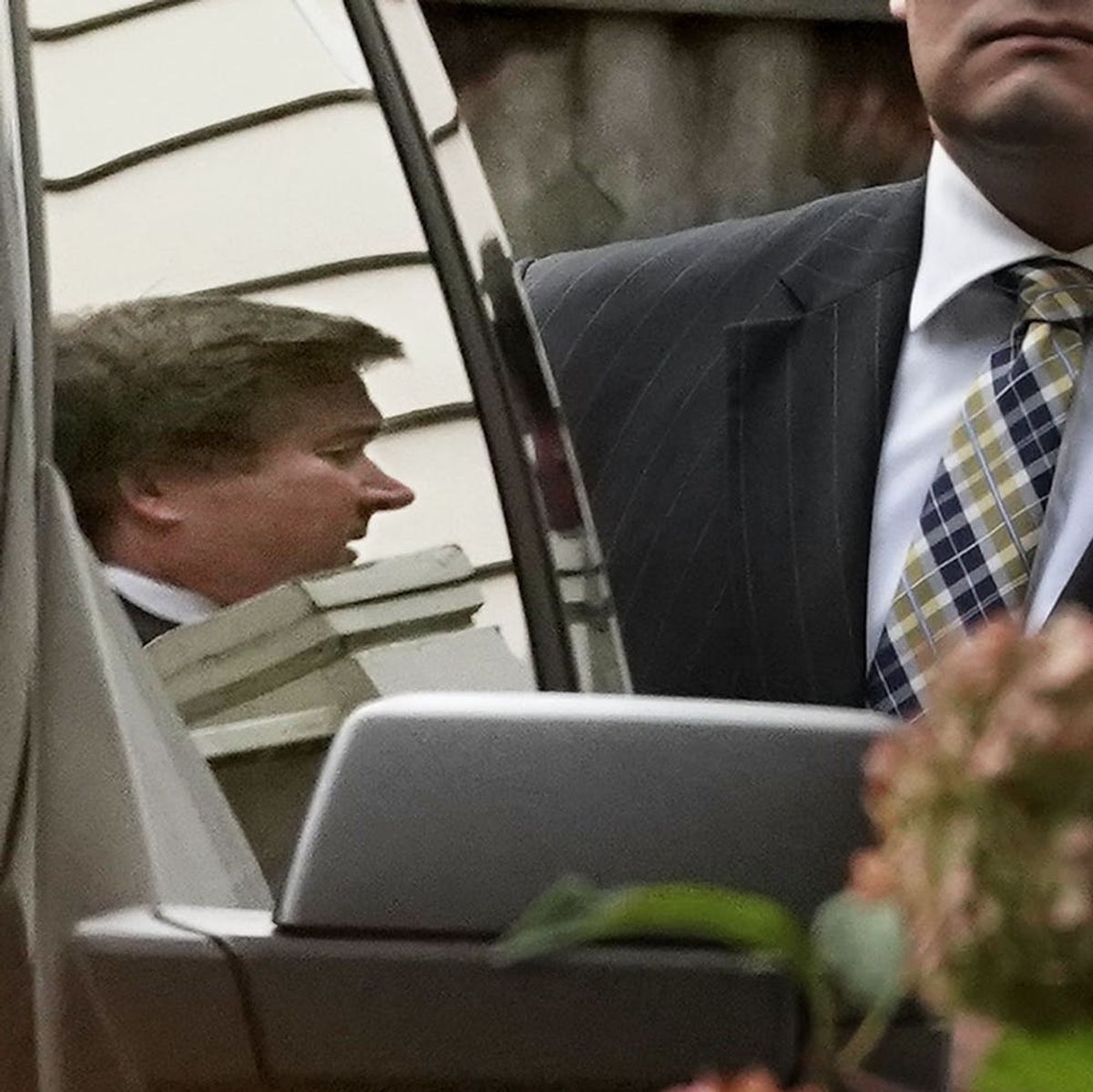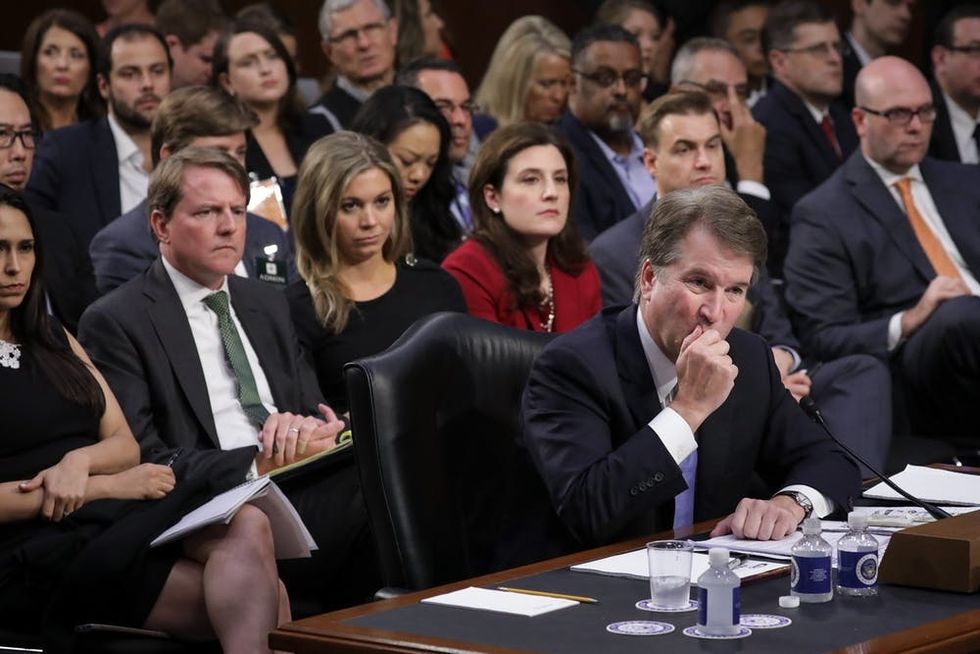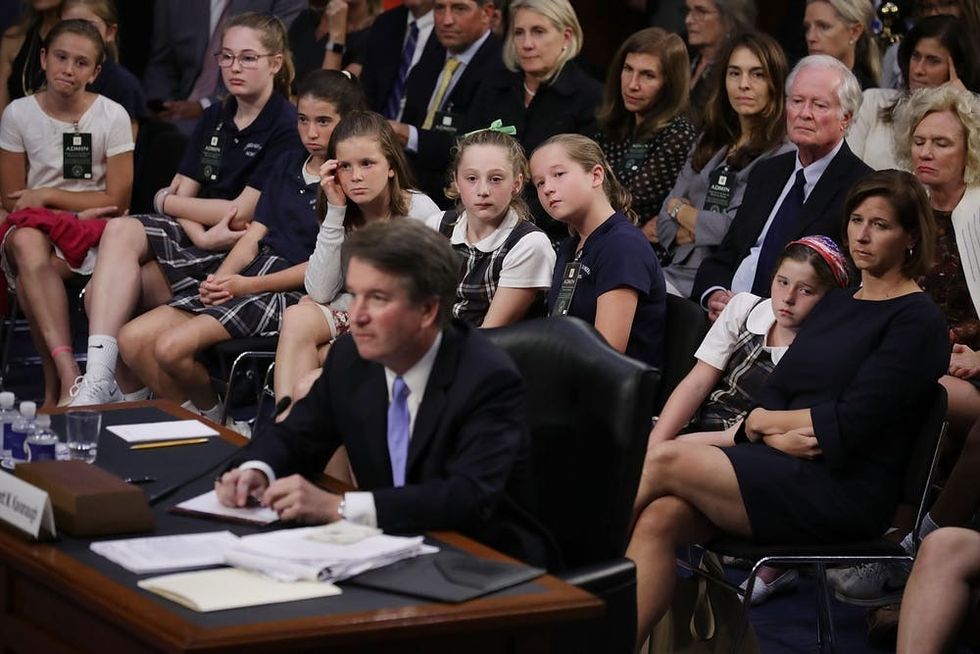The Willful, Anti-Woman Ignorance of ‘Why Didn’t She Report Sooner?’

In the wake of a sexual assault allegation against President Trump’s latest SCOTUS nominee, judge Brett Kavanaugh, reactionaries are asking a tired question: “Why didn’t she report sooner?” Kavanaugh’s defenders (including the president) have argued that, surely, the woman would have reported what happened right away when it allegedly happened decades ago if Kavanaugh had indeed done it. The implication is that any act of sexual violence can’t have happened unless there’s an immediate complaint filed with the police.
But haven’t we been over all of this already?

Indeed we have, many times. Since the start of the resurgent #MeToo movement last autumn, survivors (most of them women) have written and spoken at length about their experiences of assault and intimidation, including what happened when they tried to come forward, or why they decided it would be best for them to keep it to themselves for years and years. Additionally, countless survivors have spoken up (and continue to speak up) about sexual abuse perpetrated by men who aren’t in the Hollywood limelight.
Survivors are attempting, again, to make their voices heard to an audience that really doesn’t seem to care. Using the hashtag #WhyIDidntReport, thousands of mostly female survivors are taking to social media once more to explain why they didn’t report to authorities when they were sexually assaulted or otherwise confronted with gender-based violence. The gut-wrenching responses include: fearing the police because their assailant is now a cop (plenty of research also points to sexual assault and cover-ups by police), fear of being blamed for the assault (which frequently happens), and feeling scared and confused (which are common responses to trauma).
#WhyIDidntReport
Because I was in third grade, he was 17. His dad was my mom's boss, he threatened to have her fired, and I knew the church for which our parents worked had already protected him 2 other times.
I've researched him. If I'm right, he became…a cop. A detective.— Miss Malign (@nebulouswonder) September 21, 2018
#WhyIDidntReport because we know the questions people will ask: what were you wearing? Were you drinking? Did you give them any signs to indicate you were into them? Were you flirting? The victim blaming starts immediately.
— Alison Turkos (@alisonturkos) September 21, 2018
It was clearly my fault and I was so shaken and feeling this mix of shame and rage and fear and that he was so cute and he wanted to be in a dark room with me and maybe other boys at school would want me now but more likely they would think I was a slut. #WhyIDidntReport
— Rebecca Shuri She Ready Carroll (@rebel19) September 21, 2018
Survivors of sexual violence, and their advocates, have been crystal clear about why they don’t always go to the police — or, often, to anyone — after the event. In fact, there are many, many studies explaining why this is the case. Conversations about this phenomenon have been particularly prominent in the past year, since the re-emergence of #MeToo.
Which is why “Why didn’t she report?” is a nonsense question. It doesn’t even need to be asked because 1) survivors are allowed to deal with a traumatic event however they want to — nobody is required to report, and 2) we all already know why; some simply choose either not to listen, or to not believe. It’s another way to blame victims, who deserve better than to rehash their trauma for the benefit of others’ understanding.
We’ve seen this gross display of feigned ignorance many times before. When multiple women came forward to accuse former Canadian radio personality Jian Ghomeshi of sexual assault in 2014, Ghomeshi lost his job while his defenders questioned why the accusers didn’t report him to the police. Ghomeshi, then a well-liked radio celebrity, denied the abuse and was found not guilty in a trial over the allegations.

After comedian Louis C.K. was publicly accused by multiple women of sexual harassment, he vowed to stay out of the spotlight and “listen.” The women who spoke out against C.K. had actually told other people about it before, but nobody ever did much of anything to hold him accountable for his behavior (which, you may recall, he eventually admitted to after years of denial). When the allegations went viral late last year after some of C.K.’s victims went on the record, they too received death threats. Meanwhile, C.K. has already been working on a comeback.
And of course, the allegations against Kavanaugh in particular feel like a horrible deja vu. Almost exactly 27 years ago in October 1991, Anita Hill came forward with sexual harassment allegations against Clarence Thomas, whom George Bush nominated for SCOTUS justice. Hill was ruthlessly harassed, threatened, and questioned unsympathetically by an all-male panel when she bravely testified before Congress. (Thomas, as it happens, is still on the Court today.)
One can only hope that when Kavanaugh’s accuser testifies on Capitol Hill next week, she will be met with the support of elected politicians that Hill was denied all those years ago. But given that Republicans are standing by Kavanaugh while his accuser receives death threats and so many people are still asking “Why didn’t she report?,” it can be hard to hope for even basic respect.
What do you think? Tell us on Twitter @BritandCo.
(Images via Alex Wong + Drew Angerer/Getty Images)


















